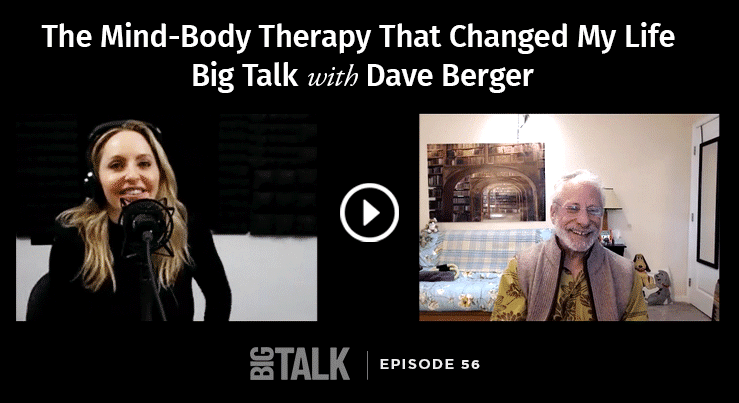A really strange thing happened a few years ago when my husband gave me a playful challenge — and it’s what piqued my interest in somatic experiencing.
“Race you back home,” my husband said …. and he set off running.
I share what happened next in my latest book, Happy Days: The Guided Path from Trauma to Profound Freedom and Inner Peace. Here’s a passage:
— Happy Days, Chapter 8, Page 159I really wasn’t in the mood to race, but hungry from our walk and eager to get home, I agreed. So I started off to run. But for some reason I couldn’t. As I tried to accelerate, my legs turned to lead. I was unable to move any faster than a brisk walking pace. Laughing it off, I stood there watching my husband run up the hill, but deep down I was concerned.
I shared this experience with my friend Elisa, who was trained in a body-based therapy known as Somatic Experiencing, or SE. (Somatic means “of or relating to the body.”) I intuitively knew she could help me understand what was going on. When I shared the story of how I couldn’t run, she nodded with acknowledgement as if it was totally normal.
She helped me understand that my body was revealing an old trauma response of immobility. She explained that during the childhood traumatic experience I was likely unable to complete the physical movement that my body naturally wanted to do at the time, namely run the hell out of there. Instead I froze. Freezing was my brain’s way of protecting me from experiencing the enormity of the event and my inability to fight or flee. The freeze occurs when our brains secrete chemicals that numb any physical and psychological pain from a traumatic event. My inability to complete my body’s natural response could lead either to dissociation or to psychosis, which could have threatened my sanity. So the biological response of dissociation, and freezing, helped me survive.
I felt great relief hearing Elisa’s explanation of my experience and became inspired to take the next step on my healing path: to thaw my frozen state and free my body from the trauma. I would do that with the support of SE therapy.
meet the “spiritual explainer” of somatic experiencing
I’m deeply grateful for the gifts that SE has given me, and I wanted to open you up to this healing resource. So—in true Gabby fashion—I got to work!
I called up Dave Berger, a leader in somatic experiencing. I asked him to come on the Dear Gabby podcast to demystify the practice for you. Dave was warned: I had a million questions for him—and I wanted answers anyone can understand …
… Even people who have never heard of SE!
I’m SO glad he agreed!

Get ready. You’re going to get the most beautiful crash course in somatic experiencing today. Dave’s capacity to dive to the heart of this practice in a straightforward, compassionate way really blew me away. (He calls himself “the spiritual explainer” of SE, so I KNEW he’d be right for my audience!)
what is somatic experiencing?
Dave created such a safe and supportive learning environment. You’ll be able to feel this beautiful vibe in our virtual classroom on Dear Gabby today!
listen to today’s episode to learn:
- The surprising link between unresolved trauma and physical health (this knowledge was instrumental in healing my chronic pain)
- Signs that you might have PTSD, even if you haven’t realized it before
- Why an involuntary yawn might signal something important about your emotional state
- How to use physical movement to heal shame (this blew me away!)
- One simple thing you can do daily to calm your nervous system in seconds (you can use this at the supermarket, in therapy or at home)
And Dave and I didn’t just talk about SE …
We practiced it …
LIVE!
With me as the patient.
>>>>Eeeeek! This was surprisingly vulnerable.
I have to admit: Doing this live demo brought up more emotions than I thought it would. This is a deeply intimate moment in the show—but it’s also a gorgeous one. And I’m proud to say that this live demo really gives a taste of what somatic experiencing can do.
a beautiful heart-opening
So many feelings came up as Dave and I worked through my chronic jaw pain. But at the end of the mini session, what I was most deeply aware of was this:
my heart had opened so wide
My heart was open to Dave because of his calming, gentle and personable nature. And beyond that, my heart was wide open to you, my Dear Gabby listeners … as it always has been, and always will be.
I’m thrilled that you’re here and willing to learn about this beautiful healing practice. If you feel called to try it, I pray that somatic experiencing cracks you open to a new way of being, just as it did for me.
a bridge back to presence
Getting out of my head and back into my body through SE practices was a way of releasing the stuck energy that had held me back from receiving inspiration, presence and a greater connection to the energy of the Universe.
For me, SE and other body-based practices have been a bridge back to presence.
There were times in my life when I was so anxious, my body was always in fight, flight or freeze mode. I felt like there was a live wire of energy running through my system at all times.
Now I wake up every single day without anxiety.
I know what it means to feel unsafe in your body or to think that relief is far away. But I promise you this: Resolution is within your reach. And I hope this episode of Dear Gabby brings you one step closer to it.
get more gabby
free manifesting meditation to attract your desires
- Dave Berger is a somatic psychotherapist, physical therapist and bodyworker. You can learn more about him and his diverse array of practices here.
- For more on mind-body healing, check out this video:
- Try my gabby coaching app for free —get access to hundreds of meditations, lessons and talks all in a beautifully designed app. Start your free trial to unlock your 7-day manifesting jumpstart!
- For a deeper dive check out my books.
- If you feel you need additional support, please consult this list of safety, recovery and mental health resources. I’m proud of you for your commitment to self-care.
disclaimer
This podcast is intended to educate, inspire, and support you on your personal journey towards inner peace. I am not a psychologist or a medical doctor and do not offer any professional health or medical advice. If you are suffering from any psychological or medical conditions, please seek help from a qualified health professional.
